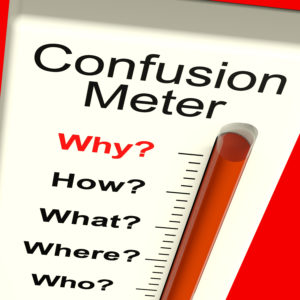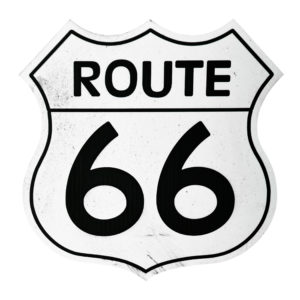Quick links, bringing you great articles on writing from all over the web.
The end of your story is just as important as the beginning. Especially if you want readers to give good reviews and buy more of your work! , posting at Writer unBoxed, gives some great insight on how to make your novel’s ending one that will leave readers asking for more!
~ * ~
Orchestrating the End of Your Novel
By
 I’ve spent the last eight months writing a novel, and I’m now closing in on the finish. What makes a good ending? How do you know if you’ve landed it?
I’ve spent the last eight months writing a novel, and I’m now closing in on the finish. What makes a good ending? How do you know if you’ve landed it?
One of my favorite TV shows of all time is heading into the final season, and I am not happy about it ending at all, so the actual end had better really hit all the right notes, or it will be ruined for me.
Ruined for all time.
A couple of years ago, I wrote a new adult series of five books about a love triangle. As I came closer and closer to the end, I started to realize that the ending I though I’d be writing was not the ending the books needed. To write it the way that was right, deep down right, I would have to break a sort of rule about triangles, which is that the girl will end up with the first guy the reader met. It’s not a hard and fast rule, not like the happily-ever-after of a romance novel. My protagonist had her happily-ever-after, and a happy romance.
Read the full post on Writer unBoxed.

 If you’ve written nonfiction for any length of time, particularly if you write in a specialized “niche,”it’s possible to reach a point when you feel as if you’ve run out of fresh ideas. You’ve done all the seasonal stories, covered all the breaking developments in your field—and the ideas for your next feature just aren’t coming. You’ve reached what we in the industry politely refer to as a “dry spell,” although when you’re in one, it more often feels like you’ve crash-landed in the desert.
If you’ve written nonfiction for any length of time, particularly if you write in a specialized “niche,”it’s possible to reach a point when you feel as if you’ve run out of fresh ideas. You’ve done all the seasonal stories, covered all the breaking developments in your field—and the ideas for your next feature just aren’t coming. You’ve reached what we in the industry politely refer to as a “dry spell,” although when you’re in one, it more often feels like you’ve crash-landed in the desert. As we’re going deeper into the ten key scenes you need for the first layer in your novel, I want to explore the midpoint some more. I wrote about that 50% mark of your novel in
As we’re going deeper into the ten key scenes you need for the first layer in your novel, I want to explore the midpoint some more. I wrote about that 50% mark of your novel in  Today I’m talking with Australian author John Birmingham about his journey from the dizzying heights of the traditional publishing scene, to deciding to go indie and hybrid and his insights into how the publishing industry has changed. It’s an honest and really fascinating interview.
Today I’m talking with Australian author John Birmingham about his journey from the dizzying heights of the traditional publishing scene, to deciding to go indie and hybrid and his insights into how the publishing industry has changed. It’s an honest and really fascinating interview. by John Herrick
by John Herrick Warning: Hacks for Hacks tips may have harmful side effects on your writing career, and should not be used by minors, adults, writers, poets, scribes, scriveners, journalists, or anybody.
Warning: Hacks for Hacks tips may have harmful side effects on your writing career, and should not be used by minors, adults, writers, poets, scribes, scriveners, journalists, or anybody. I remember how stressed I was whenever I had a book launch for Penguin Random House.
I remember how stressed I was whenever I had a book launch for Penguin Random House. After finding myself backed into a creative corner with Canyon Echoes, and using a rudimentary version of outlining to get myself out, I was still reluctant to embrace the plotter program. I had been a pantser for nearly 20 years and the idea of changing the way I wrote was daunting. A little outlining had saved Canyon Echoes, but my fear of losing the creative flow was simply too great.
After finding myself backed into a creative corner with Canyon Echoes, and using a rudimentary version of outlining to get myself out, I was still reluctant to embrace the plotter program. I had been a pantser for nearly 20 years and the idea of changing the way I wrote was daunting. A little outlining had saved Canyon Echoes, but my fear of losing the creative flow was simply too great. Not too long ago, self-published authors were collectively admonished about the need to invest in their work. Hiring quality editors, proofreaders, cover designers, and formatters before attempting to sell a book was the constant mantra of industry experts. While some hapless writers continued to slap their Word docs up on Amazon and hope to snare a few readers, authors who took their careers seriously made the proper investments.
Not too long ago, self-published authors were collectively admonished about the need to invest in their work. Hiring quality editors, proofreaders, cover designers, and formatters before attempting to sell a book was the constant mantra of industry experts. While some hapless writers continued to slap their Word docs up on Amazon and hope to snare a few readers, authors who took their careers seriously made the proper investments. Many pulp writers of old made good bank with a hit series character.
Many pulp writers of old made good bank with a hit series character. by David Gaugharan
by David Gaugharan What Makes An Iconic Character? (And How Can You Create One?)
What Makes An Iconic Character? (And How Can You Create One?) Why is it so many new novels are—to be blunt—crap? How can we find an author we love with one book, then all the love goes away with the next? What’s going wrong? What’s missing? Where did everything go wrong?How can we learn and do better?
Why is it so many new novels are—to be blunt—crap? How can we find an author we love with one book, then all the love goes away with the next? What’s going wrong? What’s missing? Where did everything go wrong?How can we learn and do better?
 This question single-handedly turned around my writing career. It has become the first thing I ask my characters as I devise new and better ways to torture them along the road to their happily-ever-after. First, though, let me give credit where credit is due.
This question single-handedly turned around my writing career. It has become the first thing I ask my characters as I devise new and better ways to torture them along the road to their happily-ever-after. First, though, let me give credit where credit is due.